Search results for: “AI”
-
Gas power: does low utilization entail spare capacity?
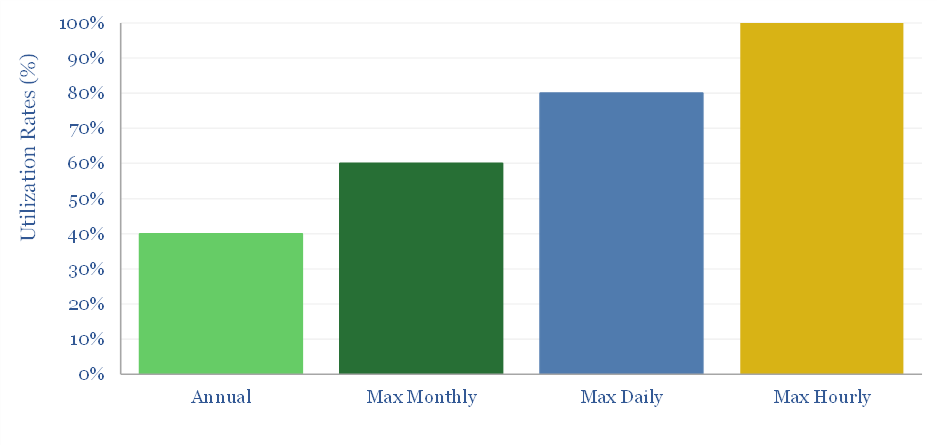
The US has >400GW of large gas-fired power plants running at 40% average annual utilization. Could they help power new loads, e.g., 60GW of AI data-centers by 2030? This 5-page note shows why low utilization does not entail spare capacity, and in turn, estimates the true spare capacity for loads such as data-centers.
-
Cool customers: AI data-centers and industrial HVAC?
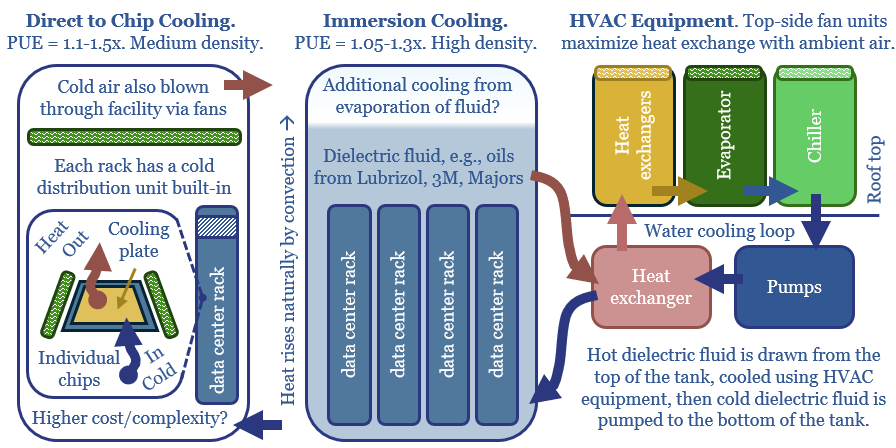
Chips must usually be kept below 27ºC, hence 10-20% of both the capex and energy consumption of a typical data-center is cooling, as explored in this 14-page report. How much does climate matter? What changes lie ahead? And which companies sell into this soon-to-double market for cooling equipment?
-
Shanghai Electric: gas turbine technology competition?
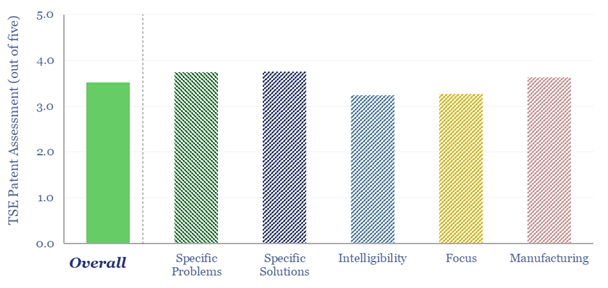
Shanghai Electric gas turbine technology is contrasted against the Western gas turbine leaders in this data-file, based on reviewing 20 patents from 2021-24. Shanghai Electric is clearly trying to compete in this space, and the patent review uncovered interesting details into turbine temperatures, efficiencies, reliability, AI+sensing and manufacturing costs.
-
Data-centers: the economics?
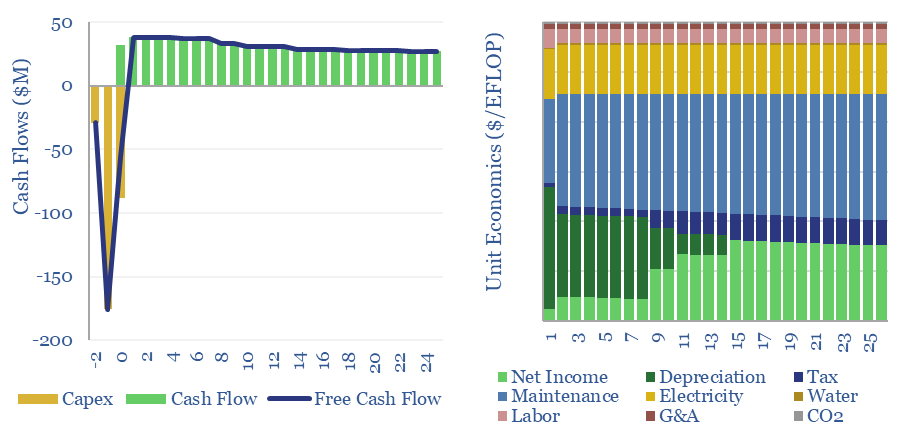
The capex costs of data-centers are typically $10M/MW, with opex costs dominated by maintenance (c40%), electricity (c15-25%), labor, water, G&A and other. A 30MW data-center must generate $100M of revenues for a 10% IRR, while an AI data-center in 2024 may need to charge $5/EFLOP of compute.
-
Internet energy consumption: data, models, forecasts?
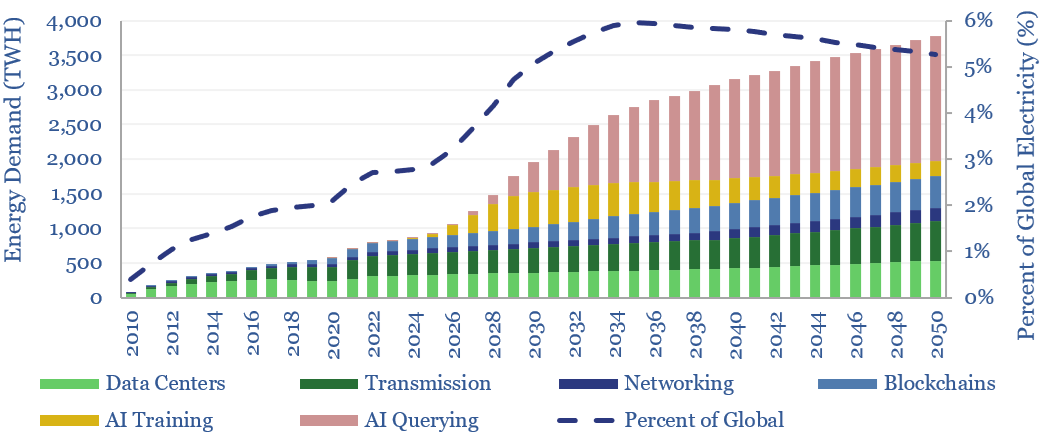
This data-file forecasts the energy consumption of the internet, rising from 800 TWH in 2022 to 2,000 TWH in 2030 and 3,750 TWH by 2050. The main driver is the energy consumption of AI, plus blockchains, rising traffic, and offset by rising efficiency. Input assumptions to the model can be flexed. Underlying data are from…
-
Semiconductors: outlook in energy transition?

Semiconductors are an energy technology. And they are transforming the future global energy complex, across AI, solar, electric vehicles, LEDs and other new energies. This short article summarizes our outlook for semiconductors in energy transition, and resultant opportunities across our work.
-
Direct air capture of CO2: the economics?
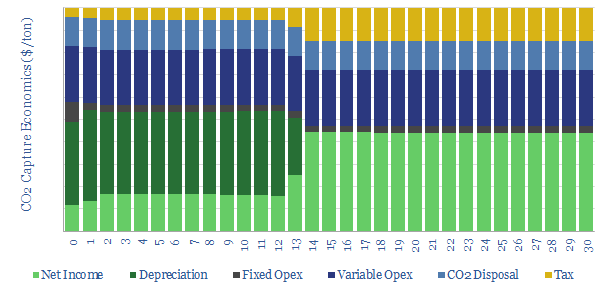
We model Direct Air Capture of CO2 is likely to cost $150-300/ton, based on granular data on its capex, opex and energy-intensity. This data-file outlines the process, our key conclusions, and allows you to stress-test your own input assumptions.
-
Bill of materials: electronic devices and data-centers?
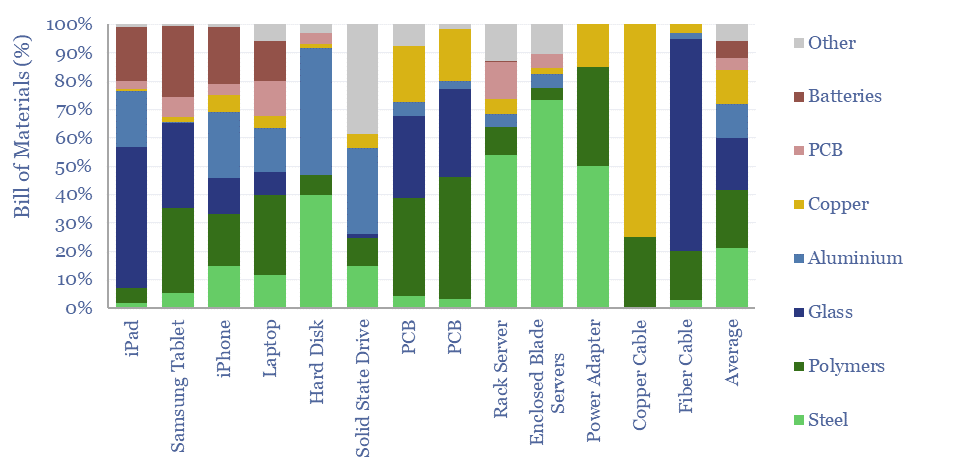
Electronic devices are changing the world, from portable electronics to AI data centers. Hence what materials are used in electronic devices, as percentage of mass, and in kg/kW terms? This data-file tabualates the bill of materials, for different devices, across different studies.
-
Residential energy prices: reasons for optimism?
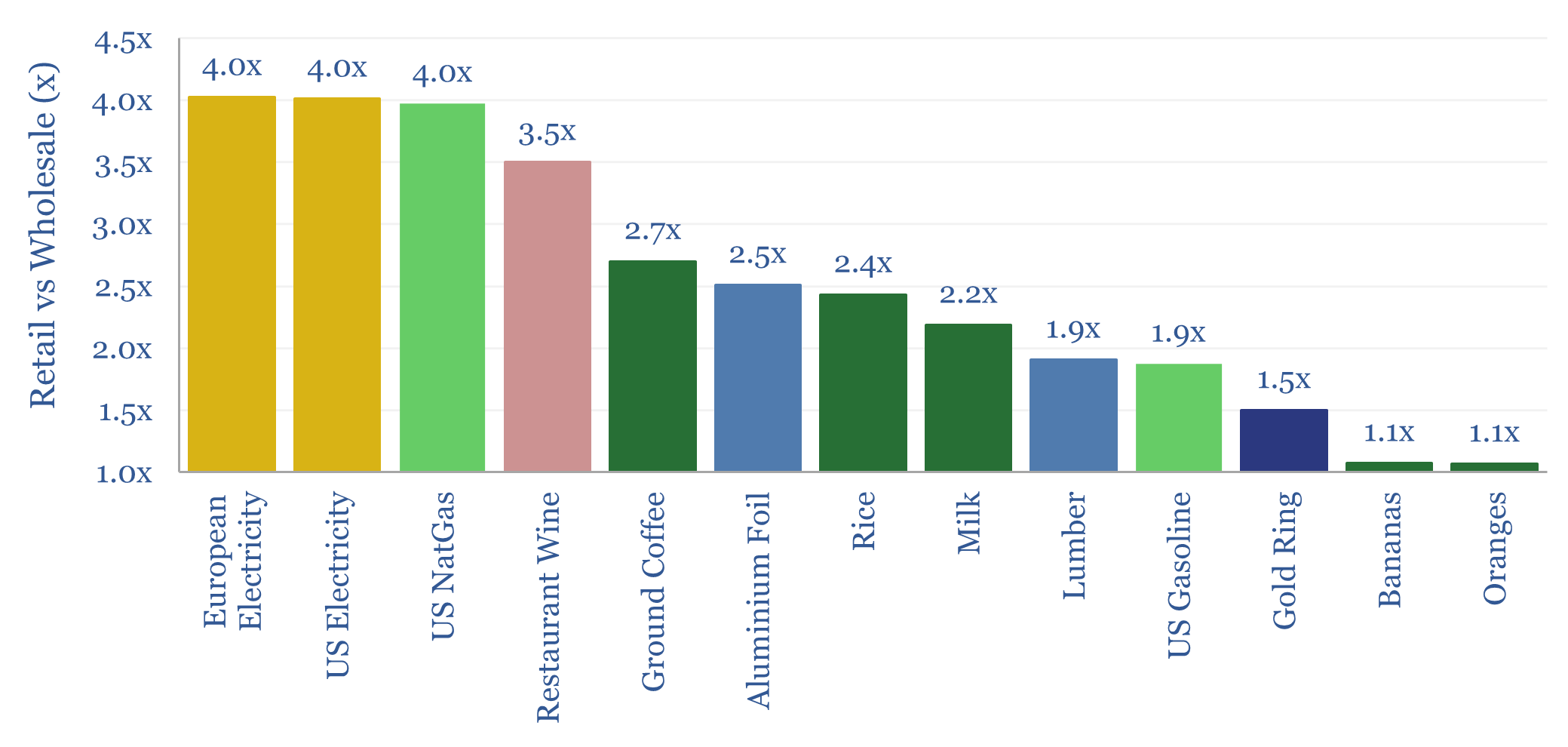
Residential energy prices tend to run 4x higher than underlying wholesale energy prices. This is a very wide margin, as by contrast, typical commoditized products in supermarkets are usually only marked up by about 2x, compared to their wholesale prices. Today’s data-file compares retail prices vs wholesale prices across a dozen different categories. A remarkable…
-
Vapor deposition: leading companies?
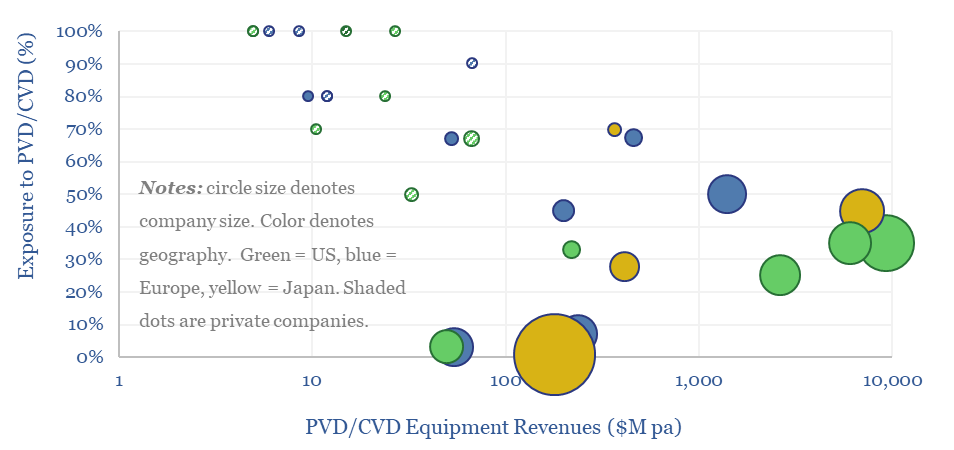
This data-file is a screen of leading companies in vapor deposition, manufacturing the key equipment for making PV silicon, solar, AI chips and LED lighting solutions. The market for vapor deposition equipment is worth $50bn pa and growing at 8% per year. Who stands out?
Content by Category
- Batteries (84)
- Biofuels (42)
- Carbon Intensity (49)
- CCS (63)
- CO2 Removals (9)
- Coal (36)
- Company Diligence (85)
- Data Models (790)
- Decarbonization (156)
- Demand (103)
- Digital (50)
- Downstream (44)
- Economic Model (194)
- Energy Efficiency (75)
- Hydrogen (63)
- Industry Data (260)
- LNG (48)
- Materials (77)
- Metals (69)
- Midstream (43)
- Natural Gas (144)
- Nature (75)
- Nuclear (22)
- Oil (161)
- Patents (38)
- Plastics (43)
- Power Grids (116)
- Renewables (147)
- Screen (107)
- Semiconductors (30)
- Shale (50)
- Solar (66)
- Supply-Demand (45)
- Vehicles (88)
- Wind (40)
- Written Research (331)
Show More
